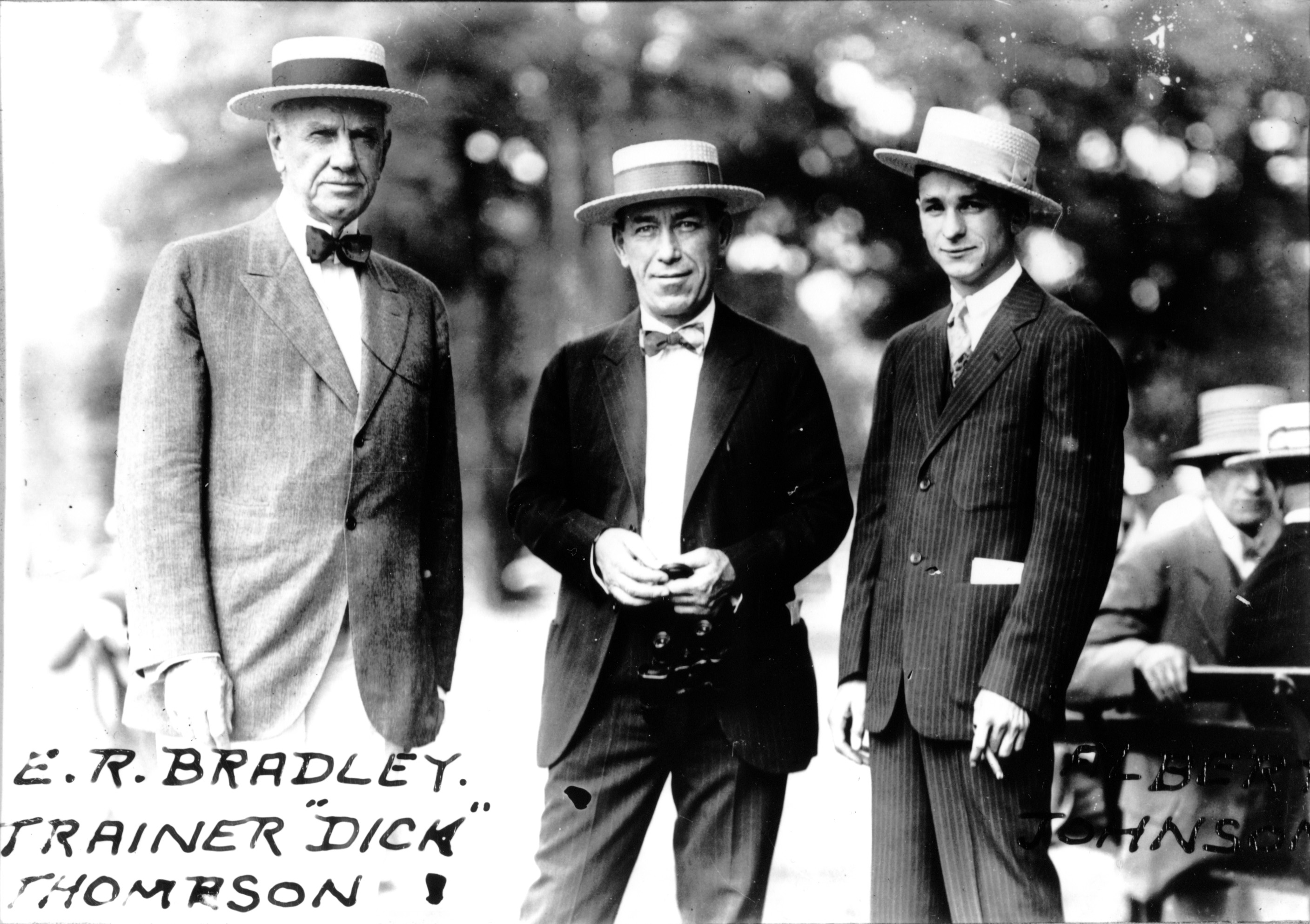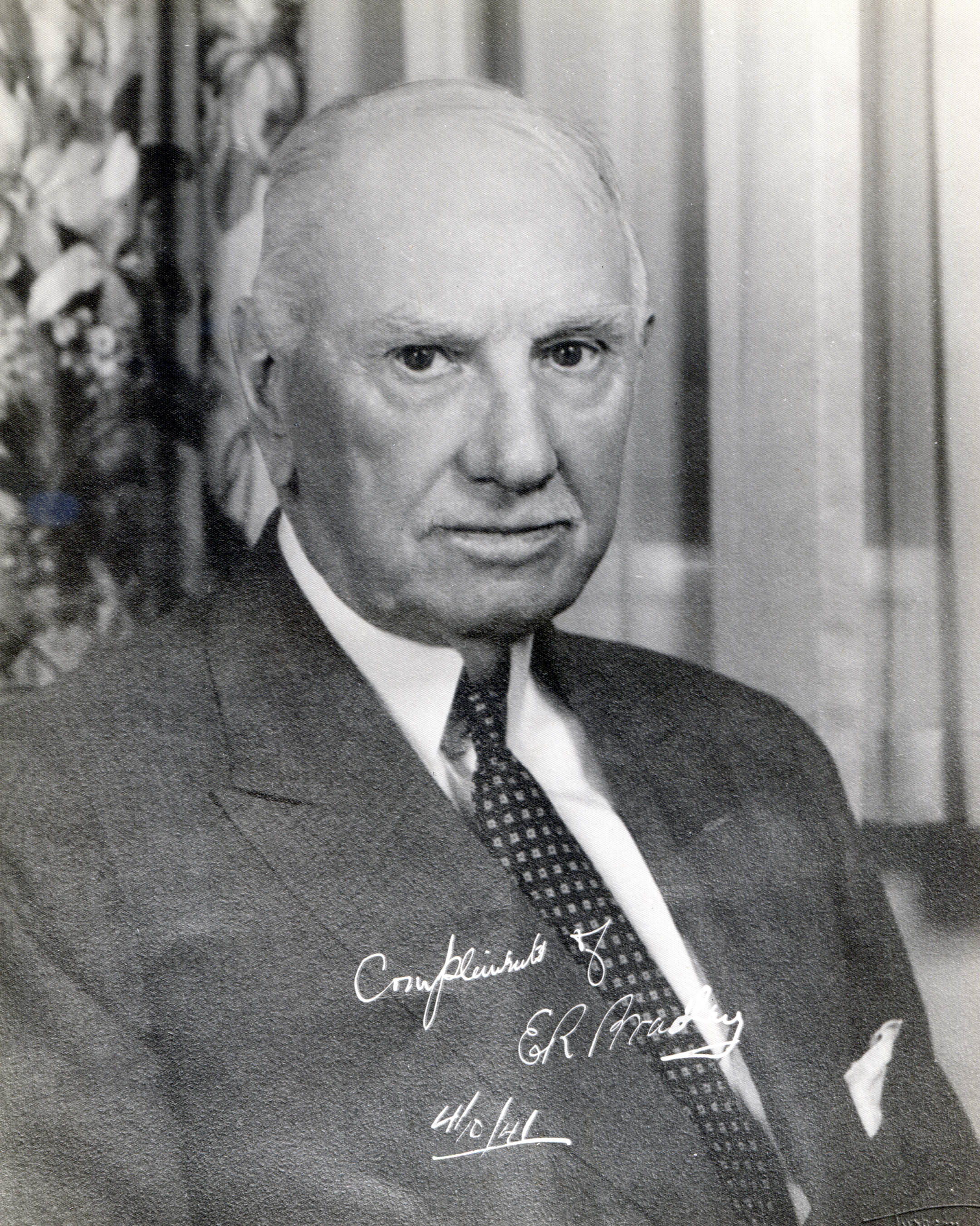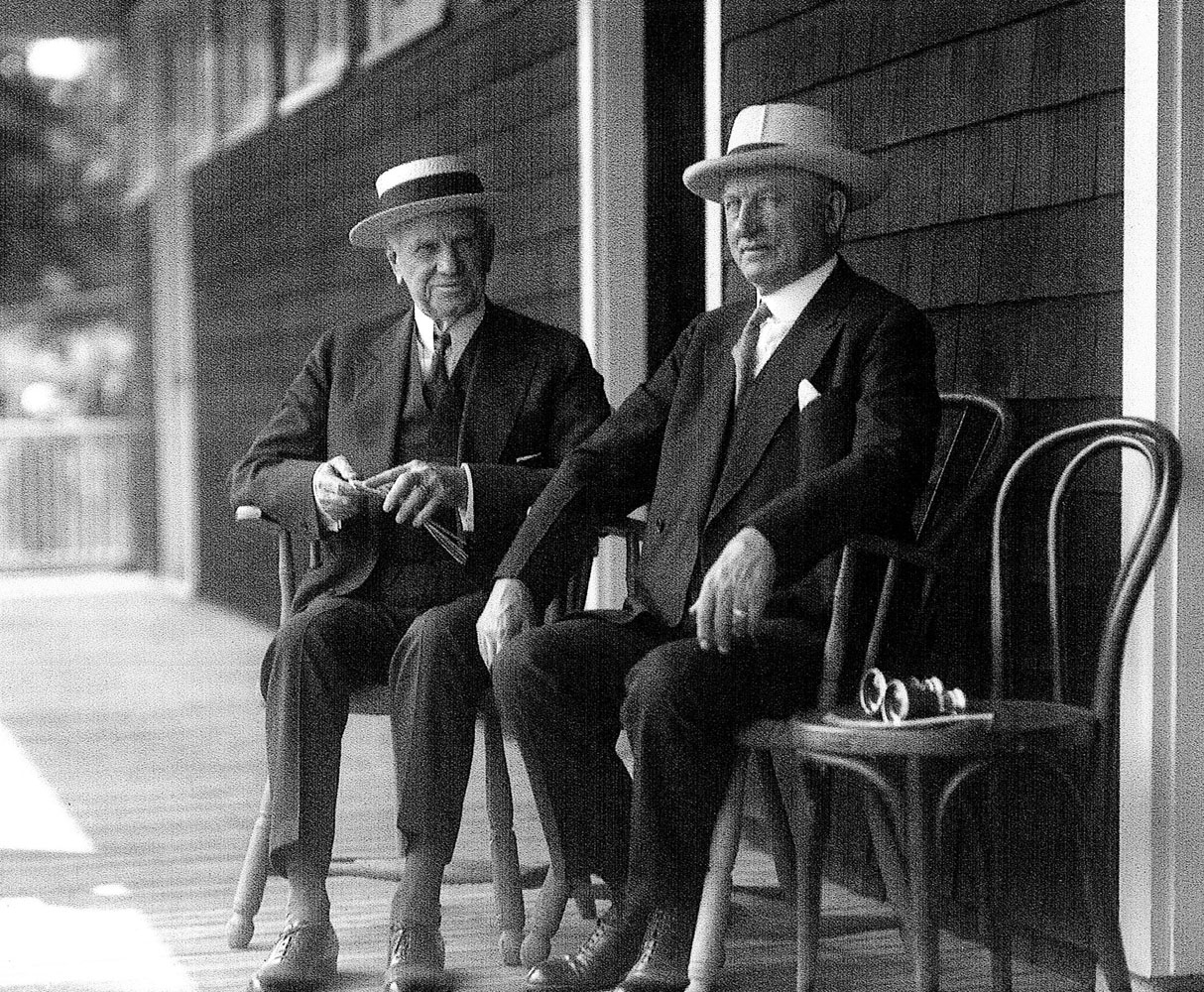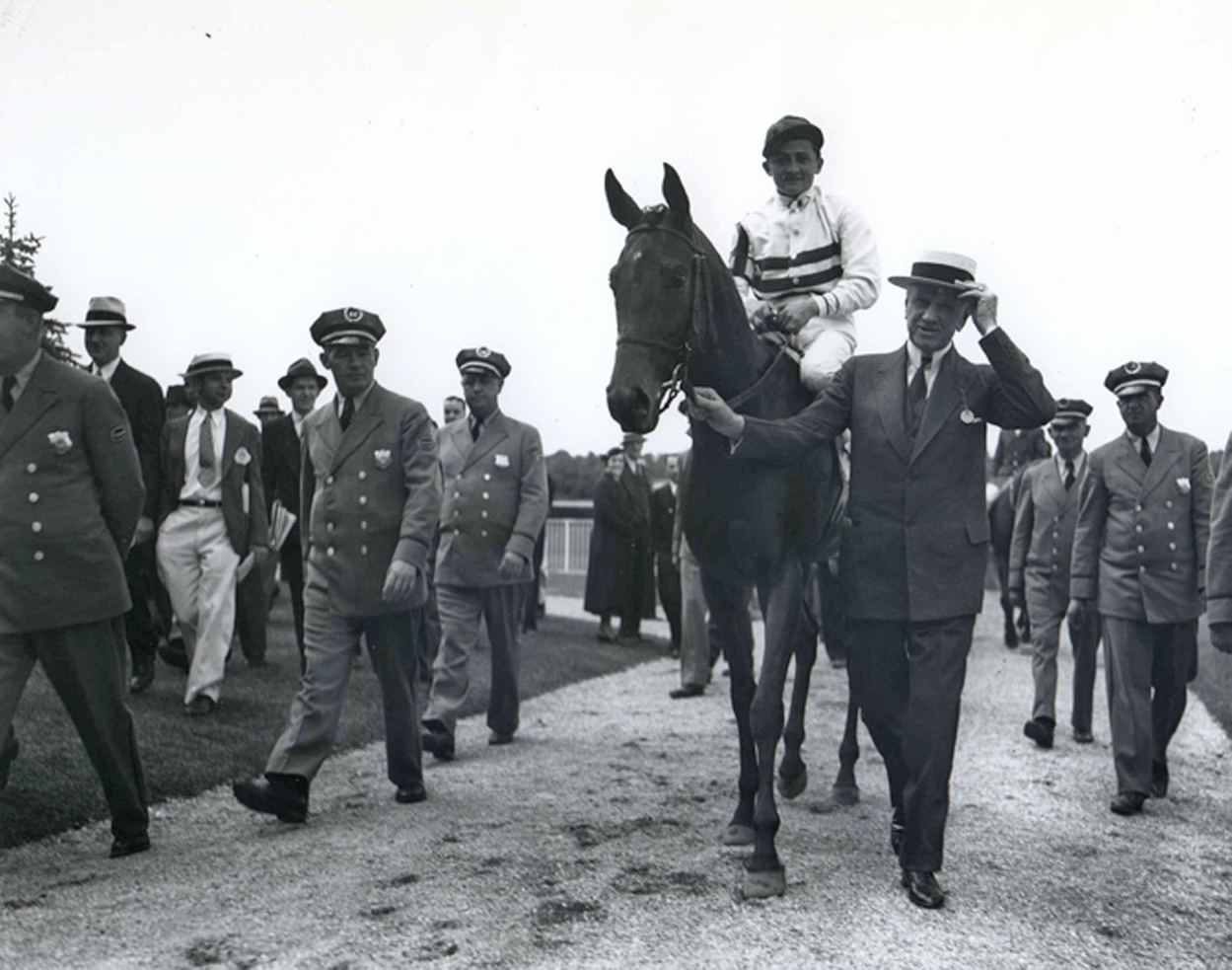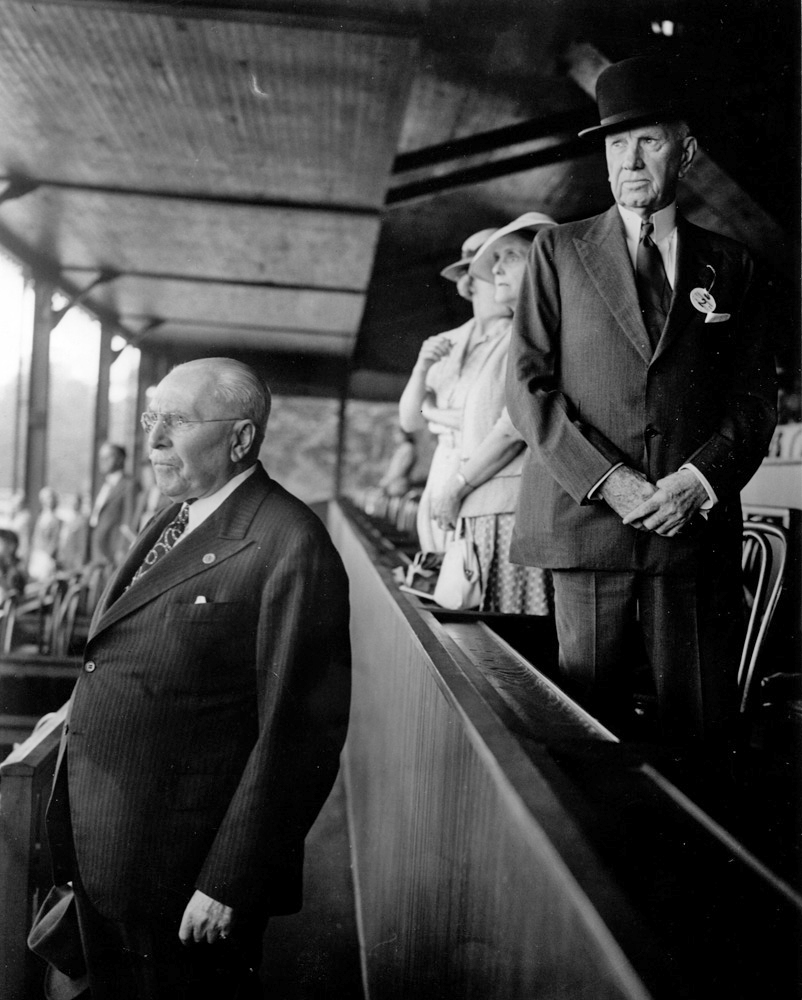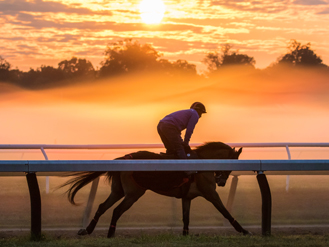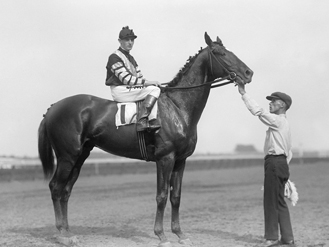Edward R. Bradley
A combination of legend and fact are woven into the traditional tales of Col. Edward R. Bradley, but there is no doubt that he was an American success story on a grand scale.
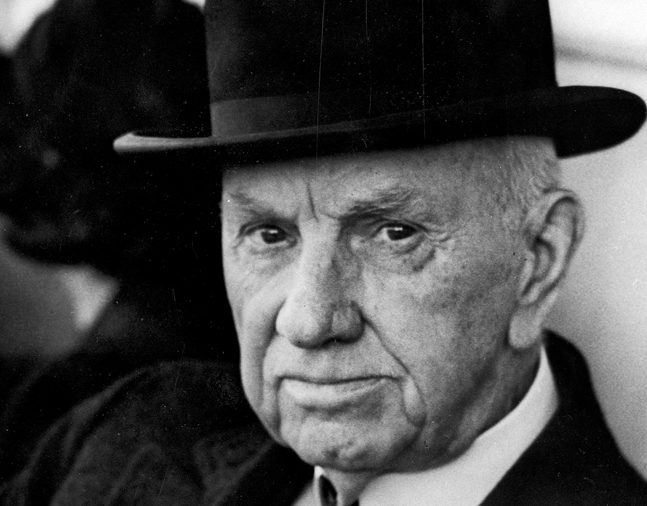
2014
Dec. 12, 1859, Johnstown, Pennsylvania
Aug. 15, 1946, Lexington, Kentucky
Biography
A combination of legend and fact are woven into the traditional tales of Col. Edward R. Bradley, but there is no doubt that he was an American success story on a grand scale.
Bradley was born on Dec. 12, 1859, in the mill town of Johnstown, Pennsylvania, and after a stint of working in the steel mills he wandered afar. He became — according to legend — a cowboy, a scout in wars against Native Americans, a gold prospector, and an acquaintance of Wyatt Earp and Billy the Kid.
More substantiated was Bradley’s venture into the world of gambling, as he ran gambling halls from the Southwest to Memphis to Chicago. Eventually, he became most strongly associated with his elegant club in Palm Beach, Florida.
Bradley was still of middle age when a physician advised that some outdoor activity juxtaposed to the gambling halls would likely lengthen his life, and he found in horse racing an outlet that provided fresh air but also plenty of action. He owned a few horses and then in 1906 bought a Kentucky farm — which his wife named Idle Hour Stock Farm — and he was on his way.
Although the Kentucky Derby at the time enjoyed nothing like the national fame and acclaim that was awaiting it, Bradley set his sights on winning the event. By the time he broke through with his first winner, Behave Yourself, the Derby had soared to national prominence. Bradley won it again in 1925 with Bubbling Over and with Burgoo King in 1932.
His most famous Derby victory came in 1933 with the maiden Brokers Tip, who prevailed against Head Play in a race revered as the “Fighting Finish” because of the jockeys physically battling each other in the final furlong. Bradley's record of four Kentucky Derby wins stood until Calumet Farm won its fifth in 1952. Ironically, the two best horses Bradley ever bred — Hall of Famers Blue Larkspur and Bimelech — were both beaten in the Derby.
Col. Bradley — the title was granted by the governor of Kentucky as a Kentucky Colonel — had entered the sport at a time when James R. Keene was enjoying enormous success by importing European mares to cross with American sire lines, particularly the line of Domino. Bradley set out to imitate that pattern frequently (although he had success, too, with the reverse pattern of imported stallions on American mares). He explained to farm manger Olin Gentry that he could not afford the best broodmare prospects from Europe. The idea was to buy into strong female families, but not to expect to get the best runners from those families. This strategy brought into the Idle Hour broodmare band the remarkable French mare La Troienne.
By the time of Bradley’s death in 1946, he had bred 128 stakes winners, including 15 champions. Early on he hit on the idea of naming horses with words beginning with “B,” so the litany of his champions ends toward alliteration — Blue Larkspur, Baba Kenny, Balladier, Black Helen, Bimelech, Busher, Bridal Flower, But Why Not, etc.
Blue Larkspur soared after his Derby defeat, winning the Withers, Belmont Stakes, and Arlington Classic in 1929. He became a major figure in pedigrees. Bimelech, La Troienne’s best racing son, was the unbeaten champion 2-year-old of 1939, and after his shocking loss to Gallahadion in the Derby the following year he bounced back to win the Preakness and Belmont. He, too, became a successful stallion.
Col. Bradley’s impact on racing went well beyond establishing a broodmare band which was to generate many years of success for himself and other breeders. In 1926, he purchased Fair Grounds in New Orleans and spent lavishly to renovate the historic track before reselling it eight years later. In the interim, he also became an investor in Hialeah in Florida, which would become the winter center of the sport both in terms of fashion and quality racing.
Despite his self-professed identity as a gambler, Bradley was a devout Catholic and was beloved for his generosity to charitable causes, both within racing and in other aspects of society. Among them was staging an annual race meeting at Idle Hour to benefit orphans.
Achievements
Triple Crown Highlights
Won the 1921 Kentucky Derby — Behave Yourself
Won the 1926 Kentucky Derby — Bubbling Over
Won the 1932 Kentucky Derby — Burgoo King
Won the 1933 Kentucky Derby — Brokers Tip
Won the 1917 Preakness Stakes — Kalitan
Won the 1932 Preakness Stakes — Burgoo King
Won the 1940 Preakness Stakes — Bimelech
Won the 1929 Belmont Stakes — Blue Larkspur
Won the 1940 Belmont Stakes — Bimelech
Other Highlights
Bred 128 stakes winners, including 15 champions
Media
